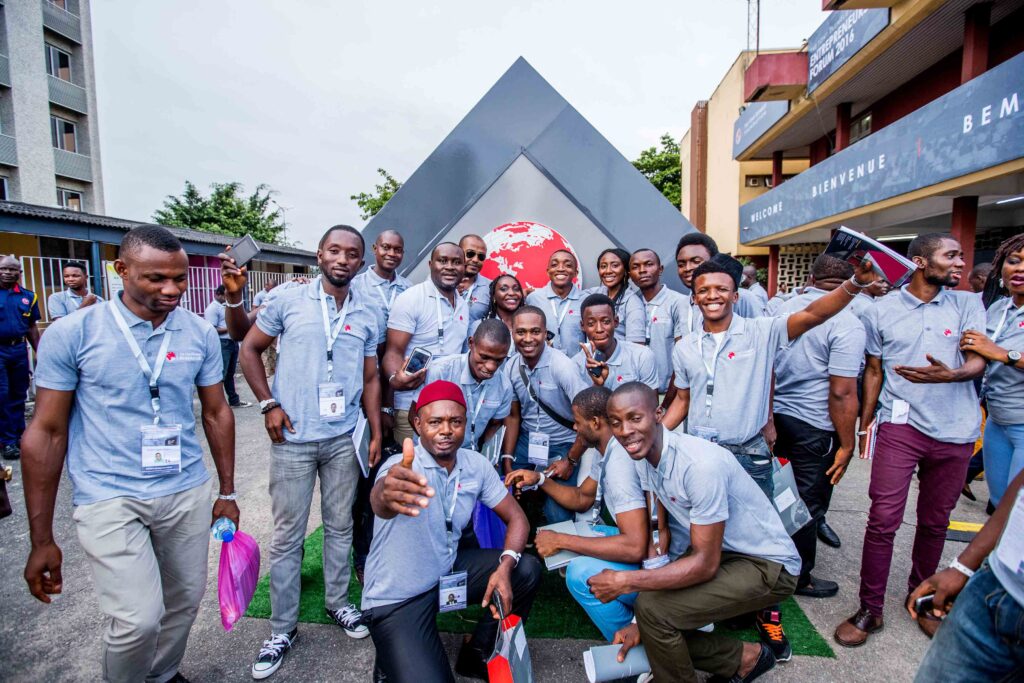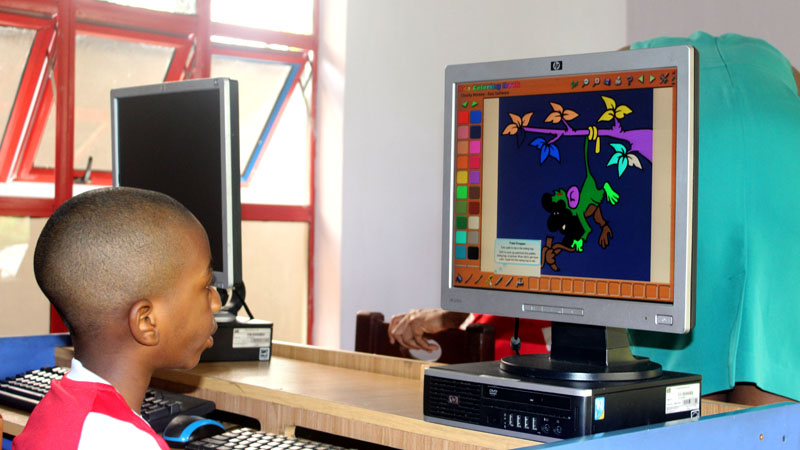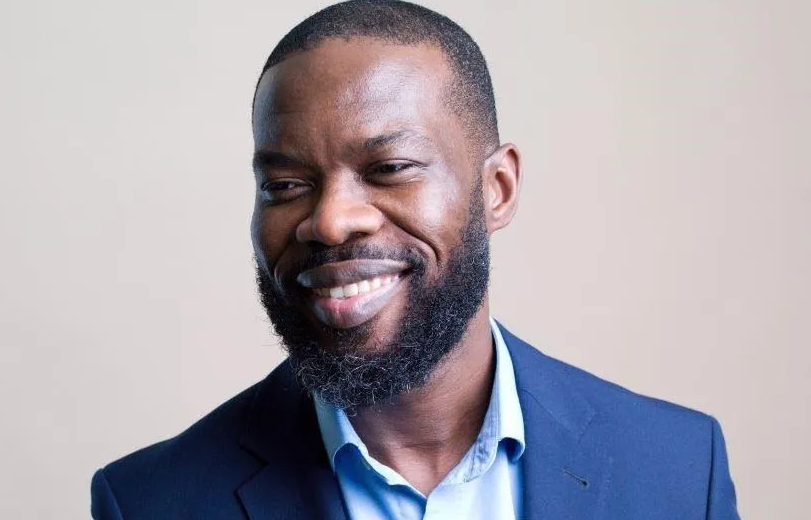Entrepreneurship is often touted as the key to solving unemployment and socio-economic problems in Nigeria. Unfortunately, a lot of small businesses fail within the first few years. Why do these businesses die so quickly? Project Management Institute (PMI), a not-for-profit organisation, seeks to address this problem by arming entrepreneurs with the skills needed for their businesses to survive.
In this interview with TheCable’s WASILAT AZEEZ, George Asamani, PMI’s managing director for sub-Saharan Africa, makes recommendations on how Nigeria, with its youth-dominated population and unemployment challenge, can use digital and entrepreneurial skills to build a bridge to employment.
TheCable: Entrepreneurs are the bedrock of the Nigerian economy. Despite their contributions, the business environment is complex and fraught with challenges. How can entrepreneurs be better supported?
Asamani: Data from the National Bureau of Statistics (NBS) show that micro, small and medium enterprises (MSMEs) account for 49.8 percent of Nigeria’s gross domestic product (GDP) and account for about 85 percent of total industrial employment spread across all the sectors of the economy, so clearly, they are the bedrock.
Advertisement
The short answer is governments, in Africa and elsewhere, can assist entrepreneurs by creating sound economic policies, single window support from registration to funding, infrastructure development and a favourable regulatory environment.
The long answer lies in Lewis Carrol’s saying, “If you don’t know where you are going, any road will get you there,” which has profound lessons for entrepreneurs.
Simply put, no matter how enabling an environment the government creates, an entrepreneur needs to have clearly defined goals.
Advertisement
Goal setting is a key power skill all entrepreneurs must possess. This allows them to not only focus on what they want to accomplish, but also give attention to processes and take action to accomplish their goals. As a result, regardless of the challenging business environment, wherever they are in the world, they can use that entrepreneurial gift to find a way, to overcome and succeed.
TheCable: How do you think entrepreneurs can win in a tough business environment?
Asamani: Most entrepreneurs treat their pursuit as a passion and seek to achieve results with a zealous attitude. They liken entrepreneurship to circuit training in the gym, where they try a bit of everything. As a result, their focus is spread, they have too many projects running in parallel, and their resources are stretched.
Entrepreneurs need to be able to apply the discipline of project management to get things done. Starting a business is one big project with key milestones along the way, which must be met if you’re going to be successful. Project management teaches you these skills and helps you develop the mindset you need for overcoming the challenges you will face.
Advertisement
TheCable: Unemployment is one of the most burning problems facing the continent. At PMI, what has been your strategy for addressing youth unemployment?
Asamani: Entrepreneurship in Africa will be driven by young minds who can connect the digital dots. The “youth bulge” is an opportunity for the continent and requires all of us to find ways to harness youth start-ups and use them as levers to rebuild a sustainable SME sector.
In Africa, PMI has partnered with the Tony Elumelu Foundation (TEF), which seeks to add $ 10 billion to the African economy by creating 10,000 new businesses on the continent.

Research shows that one of the five most common causes of entrepreneurship failure is execution risk, or the inability to deliver projects successfully. In response, and together with the TEF, PMI has developed a webinar series that guides young African entrepreneurs to build businesses and execute projects by successfully managing risk through ideation, strategy, and delivery. The partnership also supports young African entrepreneurs directly with mentorships provided through the TEF.
Advertisement
PMI also partners with the African Leadership Academy (ALA) to empower young Africans with project management skills. At ALA, PMI works with pre-university students who during their first year of ALA’s two-year programme, present ideas which are formally critiqued, marked and refined. During the second year, students work on delivering their ideas practically, supported by mentors through the PMI Chapter network.
As a non-profit, we are also investing in skills training. We have several partnerships across Africa with tertiary institutions where we offer citizen development courses for free.
Advertisement
TheCable: Not every project manager is an entrepreneur, but every entrepreneur needs to be a project manager first. How true is this in your view?
Asamani: Basic project management skills that can significantly help entrepreneurs include defining goals, setting strategy, devising a plan and outlining actions, and then weekly prioritising and tracking results.
Advertisement
However, evidence suggests that entrepreneurs rarely have formal project management training or understand the discipline, which can be a major drawback. If anyone is considering an entrepreneurial venture, I will highly recommend they take the 45-minute free KickOff course, which can be found on our website. The ability to clearly define your goal cannot be overstated.
TheCable: Kenya became the first country in Africa to introduce coding as a subject in primary schools. This is surely a giant leap for Africa. What are the lessons for other African nations, especially Nigeria?
Advertisement
Asamani: It is a welcome development that Nigeria could well adopt, especially at a critical time when the COVID-19 pandemic is driving digitisation across many parts of the world and here at home. It is exciting that Africa’s technology ecosystem is set for a period of exponential growth, accelerated by steady, if not strong market fundamentals and the pandemic.
Africa’s digital economy is large and growing, with an estimated market size of $115 billion — expected to reach $712 billion by 2050. By then, Africa will be home to a third of the world’s young people and urbanising faster than other regions. Additionally, 1 in 6 of the world’s internet users will be in Africa in 2025.
The COVID-19 pandemic has driven digitisation on the continent, encouraging more Africans to engage in digital activity. As a result of these dynamics, more investors are paying attention to the potential of African technology.
Between January 2020 and December 2021, funding for African digital start-ups grew two times faster than global rates. These are seriously eye-catching numbers, but how do we sustain the acceleration that came from unwanted quarters – the pandemic?
There is a need for education, right from elementary schools to tertiary levels on the essence of digitisation. Without it, we won’t be able to log into the digital economy.

The pandemic has shown that we need to look at ways to promote the digitisation of African small businesses, imagine if you knew how to code and were able to digitally diversify and quickly move your parents’ store online during the pandemic with an app.
We spoke about sound policy earlier and that’s a piece of policy that can also work wonders for Nigerians. Finding ways to give children and youth in Nigeria the early start on practical in-demand skills like coding will simply allow Nigerians to harness the potential of their youth and adopt technology at a faster pace. With low-code/no-code technology, it is now even easier to get children interested in coding and building apps.
TheCable: Our youth are taking on bankable business opportunities that serve as solutions to many of our development challenges. The fintech industry is one of many such sectors. How do you think young Nigerians can better prepare themselves for such opportunities?
Asamani: While the current pandemic has had a severe impact on the global economy, the digital economy has proven to be resilient. The signs of Africa’s digital revolution are impossible to miss. In 2021, African fintech companies raised more in the first seven months than they had in the decade before — some $1.5 billion, compared to $1.06 billion raised between 2011 and 2020.
Many businesses found a new lease of life online during the pandemic, proving that the ability to leverage digital tools is a must for businesses. The digital natives, in their entrepreneurial pursuits, were able to better leverage the digital economy and thrive. In doing so, they proved that, in times of crisis, challenges can be turned into opportunities, so long as there is optimism, determination, and the ability to project manage.
If the youth in Nigeria are to make a meaningful contribution to business or build their enterprises, “we need to learn how to organise and apply our skills in the delivery of actual projects or products and services”.
TheCable: The ability to build new systems is accelerating the rise of digital entrepreneurship in Africa. Does PMI have a playbook of skills to help entrepreneurs keep up with the rapidly changing digital landscape?
Asamani: The use of technology during the past two years has been nothing short of a revolution. However, the exponential increase of digital solutions did not see an equal increase in coding talent to support the adoption.
PMI reports show that 86 percent of IT decision-makers cite a lack of software skills as the biggest challenge to digital transformation. To support youth in 4IR, PMI has collaborated with partners in its larger ecosystem to promote citizen development.
Citizen development simply means that everyone, even those without formal software skills, can learn to use low-code/no-code platforms, a type of visual software development that allows one to drag and drop application components, connect them and build apps.
It is now time for governments, businesses, and non-profits like PMI to re-energise public-private partnerships and invest in new ideas and approaches to skilling youth for the new normal. If we frame the present as an opportunity, a lot can be achieved.
TheCable: Any advice for budding entrepreneurs in Nigeria?
Asamani: To all entrepreneurs, your ideas breathe because of your endless creative energy, but they will only live if you nurture them and execute your vision to make them a reality. Any endeavour you undertake will require you to focus on scope, budget, resources and time. Project management is the one skill that empowers you to manage these success factors.






